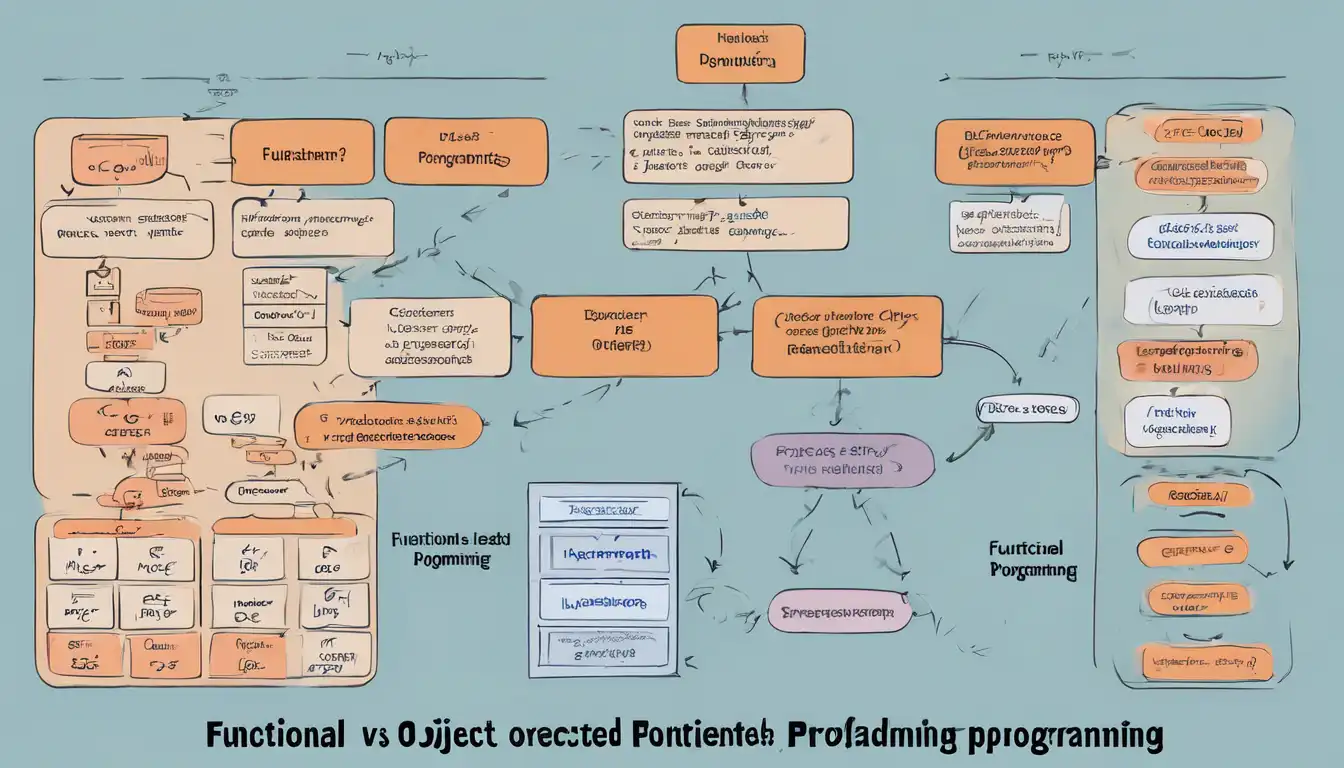Introduction to Programming Paradigms
In the world of software development, understanding the differences between functional programming (FP) and object-oriented programming (OOP) is crucial for choosing the right approach for your project. Both paradigms offer unique advantages and challenges, making them suitable for different types of applications.
What is Functional Programming?
Functional programming is a paradigm that treats computation as the evaluation of mathematical functions and avoids changing-state and mutable data. It emphasizes the application of functions, in contrast to the imperative programming style, which emphasizes changes in state.
- Immutable Data: In FP, data is immutable, meaning it cannot be changed after it's created.
- First-Class Functions: Functions are treated as first-class citizens, allowing them to be passed as arguments, returned from other functions, and assigned to variables.
- Pure Functions: Functions in FP are pure, meaning they always produce the same output for the same input and have no side effects.
What is Object-Oriented Programming?
Object-oriented programming is a paradigm based on the concept of "objects", which can contain data, in the form of fields, and code, in the form of procedures. OOP focuses on the objects that developers want to manipulate rather than the logic required to manipulate them.
- Encapsulation: OOP bundles the data and the methods that operate on the data into a single unit or class.
- Inheritance: This allows a class to inherit properties and methods from another class, promoting code reusability.
- Polymorphism: It enables one interface to be used for a general class of actions, with the specific action determined by the exact nature of the situation.
Comparing Functional and Object-Oriented Programming
When deciding between FP and OOP, consider the nature of your project. FP is often preferred for applications requiring high levels of concurrency or those that are heavily mathematical. OOP, on the other hand, is ideal for large, complex systems that are actively developed or maintained, as it allows for easier management of state and behavior.
Performance Considerations
Functional programming can offer performance benefits in certain scenarios due to its emphasis on immutability and pure functions, which can lead to more predictable code and easier debugging. However, OOP can be more performant in scenarios where state management is complex and requires frequent updates.
Scalability and Maintenance
OOP's modular nature makes it highly scalable and easier to maintain over time, especially for large teams. FP's stateless nature and pure functions can also contribute to maintainability, but it may require a steeper learning curve for teams not familiar with the paradigm.
Conclusion
Both functional and object-oriented programming have their place in software development. The choice between them should be based on the specific needs of your project, team expertise, and the problem domain. By understanding the strengths and weaknesses of each paradigm, developers can make informed decisions that lead to more efficient, maintainable, and scalable software solutions.
For more insights into programming paradigms, check out our articles on Programming Paradigms and Software Development Best Practices.
